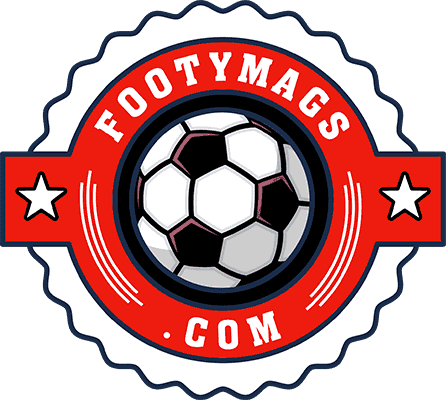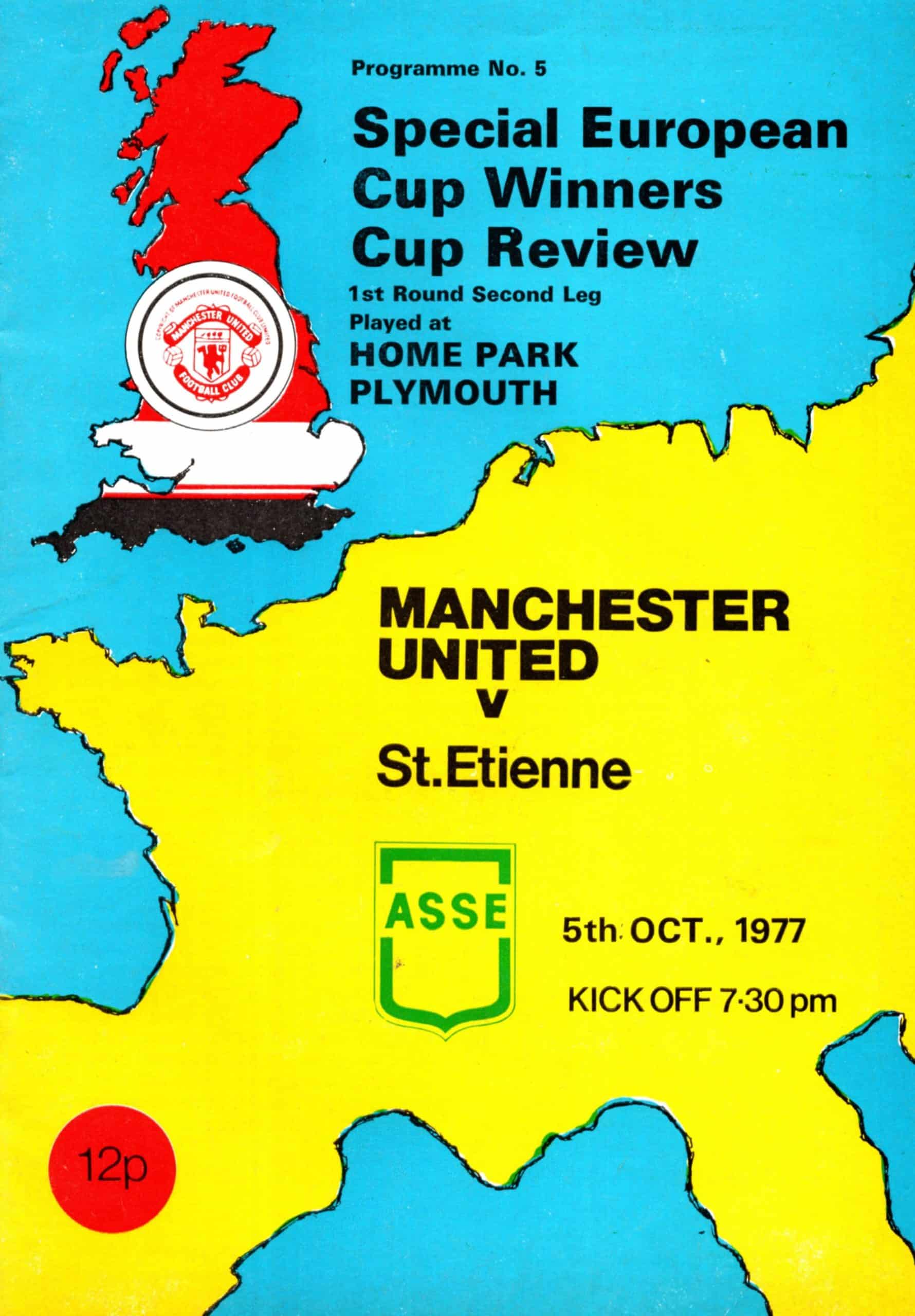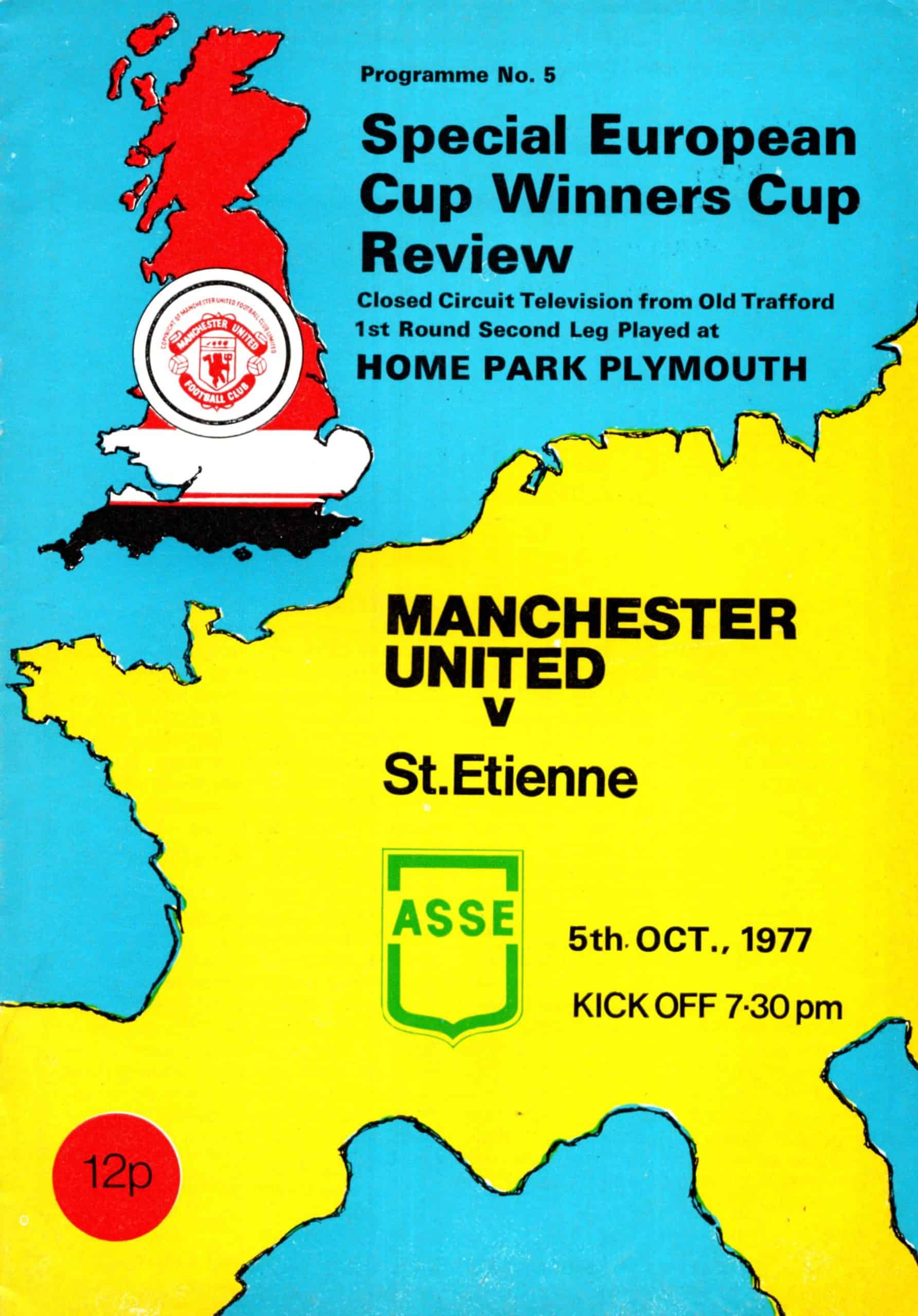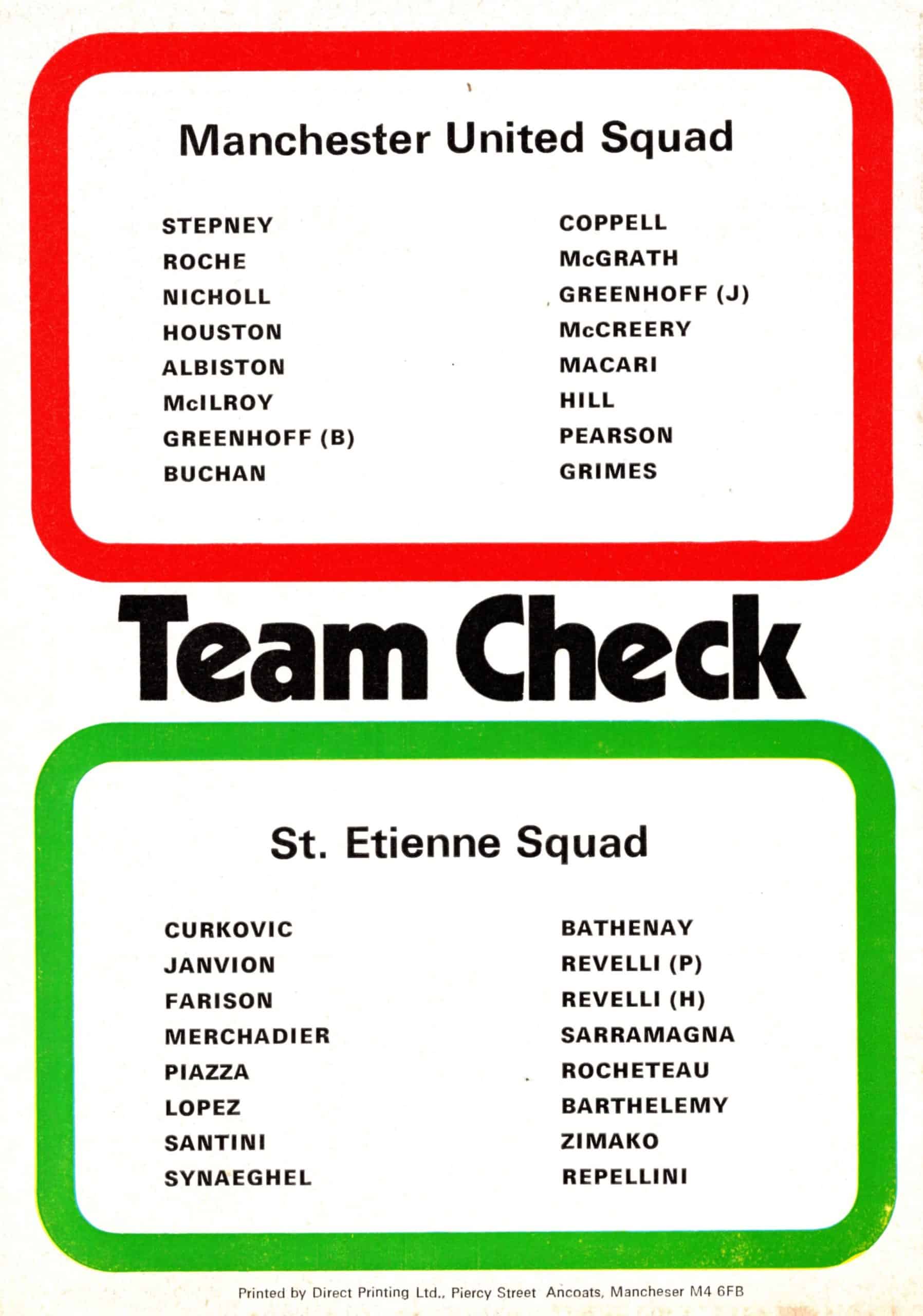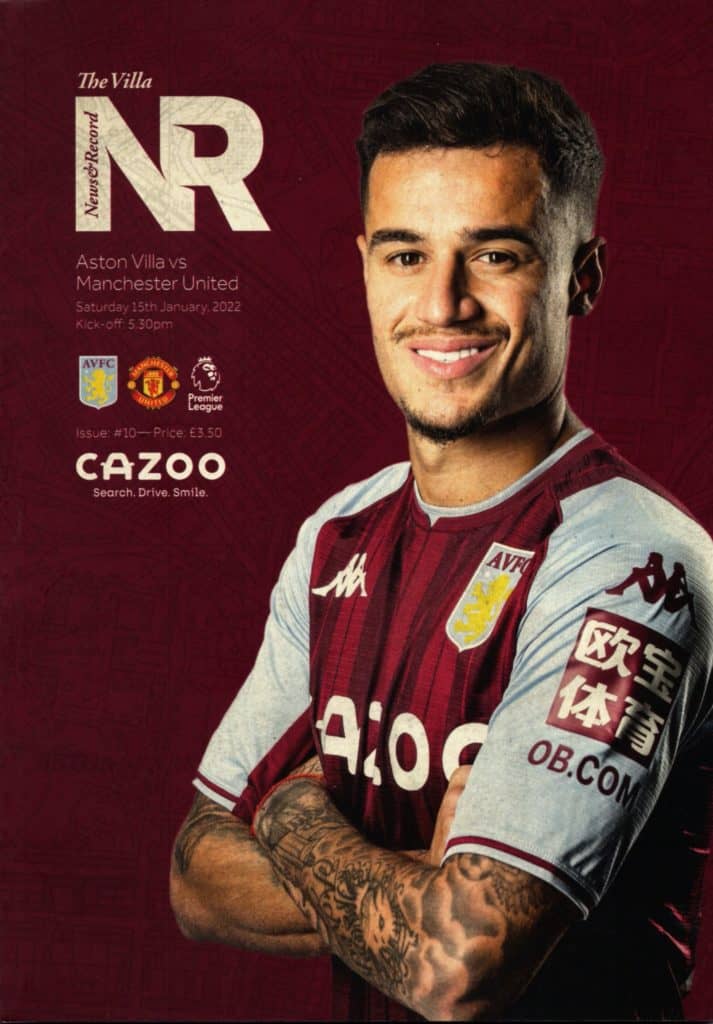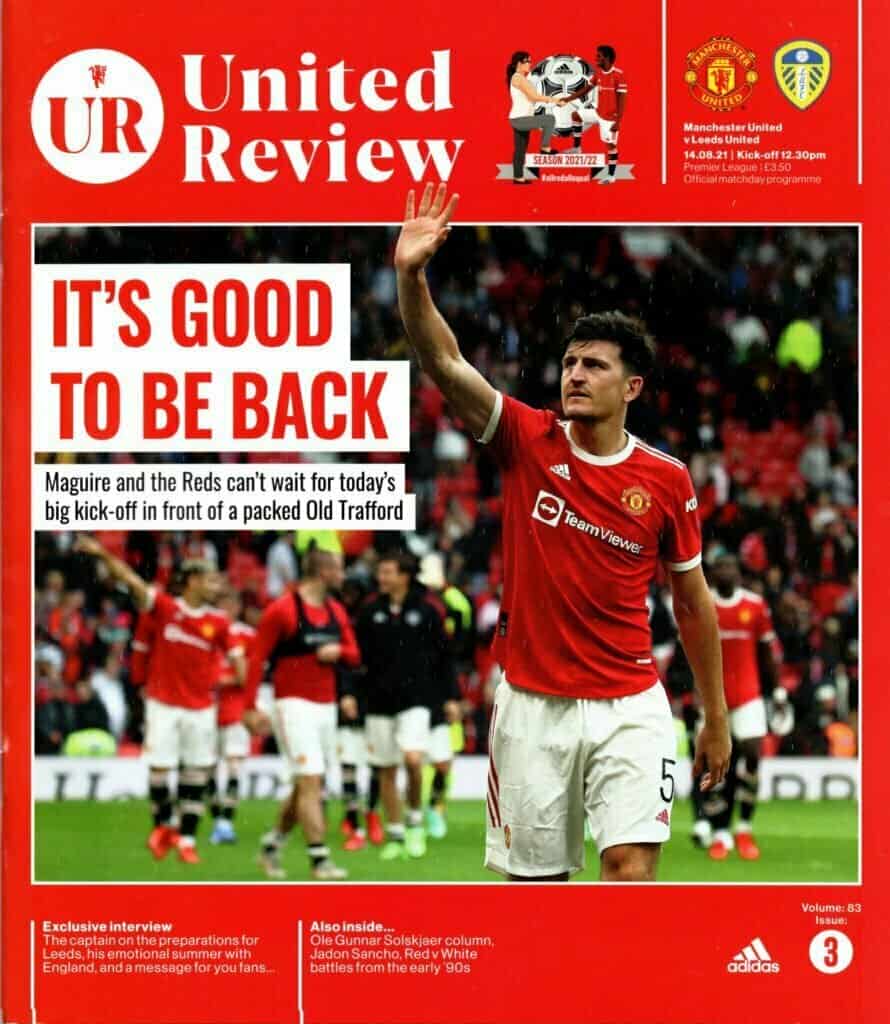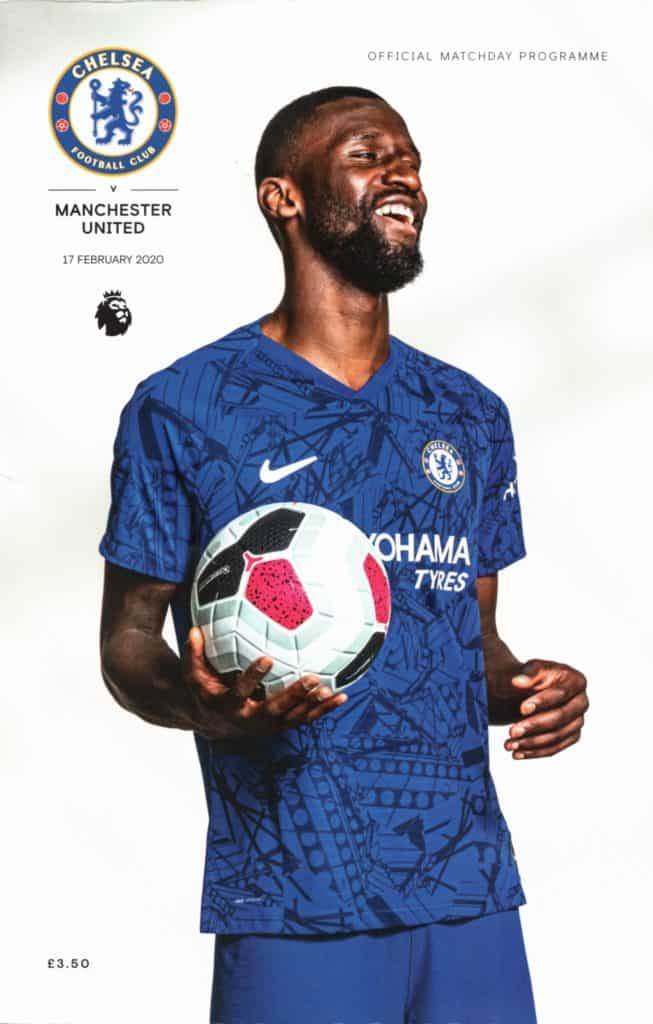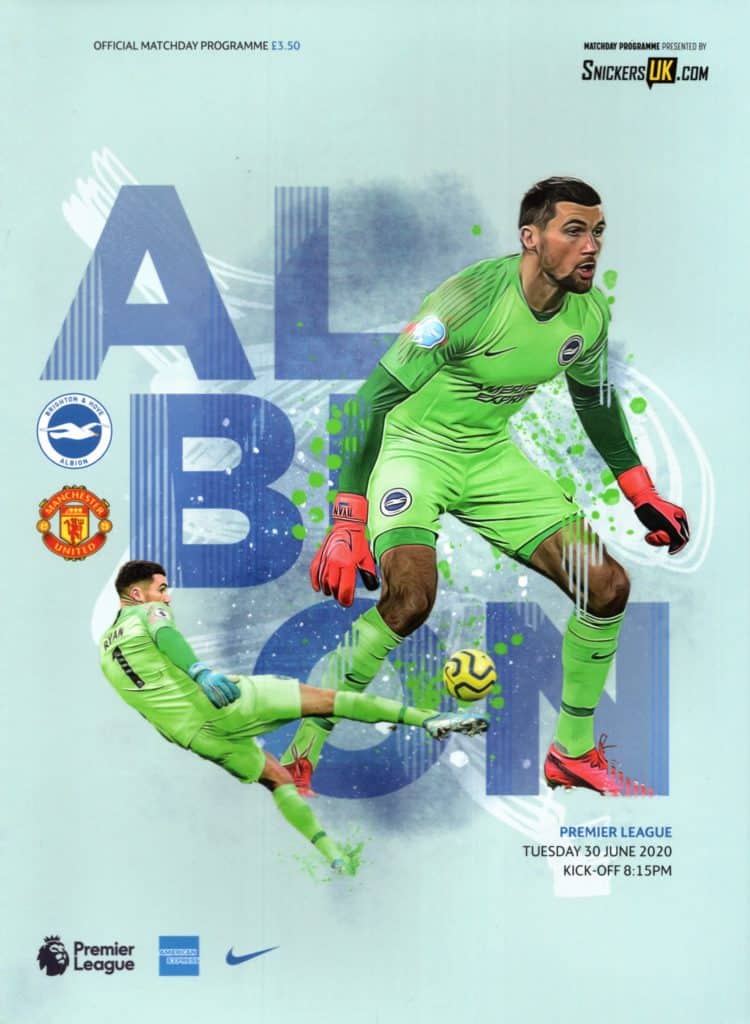Violence at a 1977 Cup-Winners’ Cup tie between St-Étienne and United led to an order that the second leg be played at least 200km from Old Trafford
The last time St-Étienne were supposed to play at Old Trafford they ended up in Plymouth but only after routes to London, Scotland and Northern Ireland were shut. United had been banned from playing at home but not from playing at Home Park, where the match was declared a triumph not because United won 2-0 but because it unfolded without a bloody riot, unlike the first leg in France three weeks before.
We are talking about September 1977, a time when St-Étienne were slipping out of their golden age and English football was in the throes of an era of glory and beauty on the pitch and fervour and mayhem on the terraces. Violence regularly attended matches involving English clubs – on the same night that United fans earned infamy in St-Étienne, there were skirmishes at a Uefa Cup tie between Manchester City and Widzew Lodz, while fighting between fans of Newcastle United and Bohemians in Dublin degenerated to such a level the Newcastle goalkeeper Mick Mahoney was felled by a brick. But events in St-Étienne were deemed exceptionally sinister and drew unprecedented punishment.
The match, for what it’s worth, was an alluring first-round European Cup-Winners’ Cup tie for which Dave Sexton’s side had qualified by beating Liverpool in the previous May’s FA Cup final. St-Étienne had won the French equivalent but that success did not mask the decline of a team who had been one of the most thrilling in Europe. They were the French champions three seasons in a row until 1976, the runners-up to Bayern Munich in that year’s European Cup final and valiant opponents to Liverpool in a 1977 European Cup quarter-final that remains part of the competition’s folklore. Even though they were on the wane when United came to town for the first leg on 14 September, the tie was a meeting of two illustrious clubs. But by the time football broke out at the Stade Geoffroy Guichard, anarchy had relegated it to a sideshow.
“The night before the game, a small group of Manchester supporters, some with knives, broke shop windows, ransacked the hall of an hotel and looted a shop in the city,” read a report in the Times. “Five were arrested and will appear in court.”
Despite that warning and despite the pillaging of Paris by Leeds United fans after the 1975 European Cup final, French authorities were unprepared for what ensued on the day of the match.
About an hour before kick-off, in a stadium with no segregation, mass fighting erupted. There are differing accounts as to what triggered it – many United fans said locals bombarded them with bottles and croissants, a version endorsed by Sexton who said: “It seemed to me that there was a lot of provocation going on,” while the club’s secretary, Les Olive, was quoted in the Guardian saying, “the trouble seemed to start when St-Étienne fans started shoving our people away from the central section behind the goal”. But most of the blame was assigned to visitors.
“About 100 Britons started a fight behind one of the goals,” reported the Times. “Armed with bottles, sticks and knives they went for the supporters of the French team. Panic-stricken supporters rushed down towards the wire netting around they pitch where they were piled up. People following jumped over the bodies to the safety of the pitch. The rest of the crowd shouted ‘Les flics, les flics [Cops, Cops!]’ because the riot police on hand were slow to intervene. It took three charges by truncheon-swinging police to clear the battlefield, expelling most of the Manchester supporters.”
The Guardian’s David Lacey wrote that amid the fighting “a barrier collapsed and more than 100 St-Étienne fans climbed the 10ft wire fence which surrounds the pitch to escape … United supporters fought for several minutes and were then routed by French police who drove them to the terraces and in some cases out of the ground altogether.”
Once calm was restored a fine match took place, Gordon Hill giving United an away goal before Christian Synaeghel equalised two minutes later. But no one was talking about that after the final whistle, when officials, journalists and politicians bandied recriminations as vigorously as fans had thrown fists and missiles. The St-Étienne chairman, Roger Roche, said of the United fans: “They were the worst hooligans I have ever seen. This ground had been without a blemish until these gangsters came here and started drinking.”
United, whose account was mostly backed by the minister for sport, Denis Howell, lamented the hosts’ shoddy organisation, maintaining that the 1,200 people who travelled with United’s supporters’ party had behaved impeccably and the trouble was caused by ne’er-do-wells who had gone to France independently and been able to buy tickets on the black market and subvert an otherwise merry atmosphere.
That was not quite good enough in the eyes of many politicians and media, who called for exemplary punishment for United, who had many followers with a habit of appearing at scenes of carnage. St-Étienne announced their intention to sue United for compensation but did not add their voice, all the same, to those calling for the club to be banished from Europe. “Winning the tie in a boardroom doesn’t interest me,” said the French team’s manager, Robby Herbin. “And United’s players don’t deserve that.” But UEFA paid no heed and booted United out.
That, as it happened, made for quite some news day, given that within the same 24 hours the Football Association banned Don Revie for resigning as the England manager without due reverence for men in blazers, English clubs won the right to carry advertising on their jerseys (except when their matches were being televised) and a players’ strike was called off after they were awarded freedom of contract.
United were scandalised. Their goalkeeper Alex Stepney, speaking with a candour that would earn him a Twitter lynching today, told the BBC: “It’s too ridiculous for words. As far as I’m concerned as a player for United, United fans have nothing at all to do with me. We went over there and gave an advert for football, both teams. I mean, we’re getting condemned for something we haven’t done.”
United immediately launched an appeal and dispatched a delegation led by Sir Matt Busby to make their case at Uefa HQ. Evidently they were persuasive, as a few days later Uefa backtracked and readmitted them but only on the condition they pay a fine and play the second leg at least 200km from Old Trafford. “Justice has been done, particularly with regard to the players,” declared Busby. But many in the media denounced Uefa for being soft on crime. The Daily Mail blurted: “It’s a cowardly decision that basically amounts to rapping Jack the Ripper across the knuckles and asking him to be a good little boy.”
United’s task was to find a venue for the second leg. The obvious first choice was the capital city. Arsenal said they would be willing to rent out Highbury, and Wembley was also suggested. But Alan Hardaker, the head of the Football League, torpedoed those plans for fear of more violence, explaining: “United have a lot of fans in the London and they are worse than anyone.”
Aberdeen then offered to stage the match and United were keen to take up their offer but it fell through because a Scottish League Cup match against Rangers could not be rescheduled. Glentoran got in touch to say they could put on a trouble-free show in Belfast; United thanked them and continued looking elsewhere. Hardaker floated the idea of Newcastle or Plymouth. United plumped for the latter.
Plymouth, a Third Division side suddenly elevated to the role of hosts of European royalty, quickly began devising ways to ensure their big day would not be besmirched by the sort of scenes that disfigured the first leg. Their efforts would be helped by the fact no tickets were allowed to be sold in Manchester, where fans could follow the match on a giant screen in Old Trafford instead (around 38,000 did so).
On the Saturday before the European game Plymouth distributed 10,000 vouchers to fans at their league tussle with Gillingham, each voucher permitting the bearer to buy two tickets to the United-St Étienne match. “We hope we can fill the stadium with West Country soccer supporters and avoid any trouble with Manchester United fans,” explained the Plymouth chairman, Robert Daniel. A crowd of 32,000 pitched up at Home Park, surveyed by the local constabulary and 100 police who had been drafted in from Cornwall and Devon. No arrests were made.
“Nothing more than routine football noises to disturb Drake in his hammock … the atmosphere was disarmingly equable,” wrote David Lacey.
Having lobbied so hard to remain in the competition, United took full advantage of their reprieve and won thanks to goals by Stuart Pearson and Steve Coppell. They were ejected by Porto in the next round.
